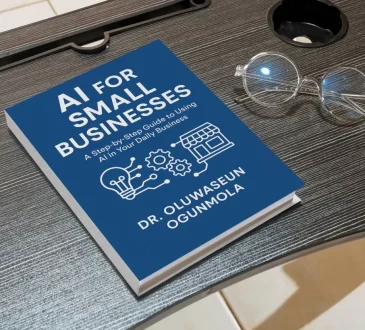
In recent years, artificial intelligence has evolved from a futuristic concept to a mainstream necessity for modern businesses. As companies face rising operational costs, increased competition, and a fast-changing digital landscape, automation powered by AI has become a strategic advantage. No longer limited to tech giants, AI-driven automation is now accessible to startups, small businesses, and traditional enterprises alike. The question for most business owners is no longer should they adopt AI automation, but how to do it effectively and sustainably.
Why AI Automation Matters Today
Business operations traditionally involve repetitive tasks, manual decision-making, and time-consuming workflows. These processes often demand large teams, high budgets, and constant oversight. AI changes this dynamic entirely. With machine learning, natural language processing, and smart algorithms, businesses can streamline everyday tasks, reduce human errors, and unlock productivity that was previously impossible.
In 2025, companies adopting AI automation report improved efficiency, faster decision-making, and significant cost savings. Customer expectations are higher than ever, and with real-time data and personalized experiences becoming standard, automation offers businesses a path to remain competitive and innovative.
1. Start with Identifying Automation Opportunities
Before adopting AI tools, businesses need to identify which processes consume the most time and resources. Typical areas ideal for automation include:
- Customer service responses
- Data entry and document processing
- Inventory and supply chain management
- Email marketing and customer segmentation
- Sales pipeline tracking
- Employee onboarding and HR workflows
A simple rule is to start with tasks that are repetitive, rule-based, and prone to human error. These are the easiest to automate and often deliver the fastest return on investment.
2. Use AI Chatbots to Improve Customer Service
One of the most popular applications of AI automation is customer support. AI-powered chatbots can handle thousands of customer inquiries instantly, providing answers 24/7. They can respond to common questions, schedule appointments, help customers track orders, and even guide them through troubleshooting steps.
Businesses that integrate chatbots see reduced response times and improved customer satisfaction. Human support agents can then focus on complex issues requiring emotional intelligence or decision-making, creating a balanced and effective support system.
3. Automate Administrative and Back-Office Processes
Back-office tasks may not be visible to customers, but they play a crucial role in business operations. AI tools can automate routine administrative work such as:
- Generating invoices
- Managing payroll
- Organizing documents
- Tracking expenses
- Updating databases
AI-enabled optical character recognition can convert handwritten or scanned documents into digital text, eliminating hours of manual data entry. Automated financial management systems can categorize expenses, track budgets, and provide real-time financial insights.
4. Use AI for Smarter Marketing and Sales
Sales and marketing automation allows businesses to personalize interactions at scale. AI can analyze customer behavior, segment audiences, and predict purchasing patterns. With tools capable of generating customized email campaigns, product recommendations, and sales follow-ups, companies can reach customers with the right message at the right time.
Predictive analytics also helps sales teams prioritize leads more efficiently. Instead of relying on guesswork, AI ranks prospects based on their likelihood to convert. This helps teams focus on high-value opportunities while automating outreach to lower-priority leads.
5. Improve Decision-Making with AI Analytics
Data is the backbone of modern business, but without proper analysis, it remains unused potential. AI automation helps companies make faster and more accurate decisions by analyzing large datasets in real time. This includes:
- Tracking market trends
- Forecasting demand
- Optimizing pricing
- Assessing financial risks
- Identifying operational bottlenecks
AI brings clarity to complex data, providing decision-makers with actionable insights. Businesses no longer rely solely on intuition; instead, they use predictive models to guide long-term planning.
6. Streamline HR and Recruitment
The human resources department is another area where AI automation is gaining momentum. AI-powered systems can screen resumes, shortlist candidates, schedule interviews, and even evaluate applicant skills through automated assessments. This saves hours of manual effort and ensures fair, data-driven evaluations.
Employee onboarding can also be automated. From document collection to training modules and task assignments, AI ensures new hires receive a smooth and consistent onboarding experience.
7. Automate Supply Chain and Inventory Management
For product-based businesses, managing inventory is both time-consuming and critical. AI-driven inventory systems monitor stock levels, predict demand, and automatically place restock orders. This prevents overstocking and stockouts while reducing storage costs.
In logistics, AI can optimize delivery routes, track shipments in real time, and analyze supply chain risks. Retailers, manufacturers, and distributors increasingly rely on automation to maintain a competitive edge.
8. Adopt AI-Powered Workflow Tools
AI workflow automation platforms connect different departments and streamline processes across the organization. These tools can automate:
- Task assignments
- Project tracking
- Approval workflows
- Document routing
- Team communication
Integrated systems allow information to flow seamlessly, reducing delays and ensuring everyone has access to the data they need. This improves collaboration and reduces the time spent on repetitive coordination tasks.
9. Ensure Data Security with AI Automation
Cybersecurity threats are evolving rapidly, and AI plays a vital role in detecting and preventing attacks. Automated security systems can identify unusual patterns, block suspicious access attempts, and alert administrators instantly. AI learns from past incidents, making it more effective over time.
Businesses handling sensitive customer information benefit greatly from automated threat detection, ensuring compliance and protecting their reputation.
10. Start Small and Scale Gradually
While AI automation offers tremendous benefits, businesses should implement it strategically. Starting with small projects allows teams to understand how the technology fits into existing workflows. Once employees become comfortable and results become visible, companies can expand automation across departments.
Training and change management are essential components of successful adoption. Employees should view AI as a tool that enhances their work, not one that replaces them.
Conclusion: The Future of Business is Automated and AI-Driven
AI is no longer a luxury—it is becoming the foundation of efficient business operations. Automation helps companies reduce costs, improve productivity, and deliver better customer experiences. Whether it’s handling daily tasks, making smarter decisions, or optimizing complex processes, AI offers endless opportunities for growth.
Businesses that embrace AI automation today will be better prepared for tomorrow’s competitive landscape. By starting with small steps and exploring the vast potential of AI tools, any organization can transform its operations and achieve long-term success in an increasingly digital world.




